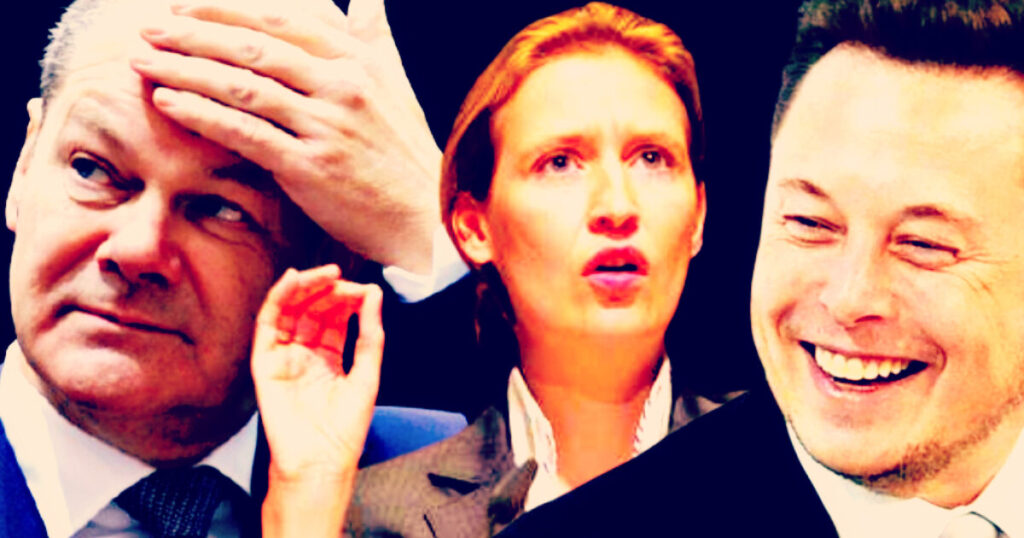Elon Musk has recently intensified his political endorsements in Germany, particularly favoring the right-wing Alternative for Germany (AfD) party as the nation approaches its February elections. Musk’s stance starkly contrasts with that of mainstream German parties, namely the Christian Democratic Union (CDU) and its leader Friedrich Merz, who he has characterized as war-mongering. His endorsement of the AfD, which is often vilified by the Brussels liberal establishment, underscores a shift in the political landscape as established parties grapple with public dissatisfaction over various socio-economic issues.
The backdrop to Musk’s controversial comments includes his past criticisms of outgoing German Chancellor Olaf Scholz, whom he deemed a “fool” for his government’s handling of significant challenges such as the energy crisis, immigration, and economic management. Following a recent tragic event at a Christmas market in Magdeburg, where a car plowed into a crowd, killing at least two people, Musk responded decisively by calling for Scholz’s resignation. He labeled the chancellor as “incompetent” and reiterated his views on social media, intensifying the scrutiny of Scholz’s administration amid calls for accountability in light of increasing public safety concerns.
Musk’s bold proclamations, including calling the AfD Germany’s “savior,” are indicative of a broader critique aimed at traditional political parties that he believes have failed the German populace. His social media statements reflect a growing sentiment among voters who feel disillusioned by centrist politics. With the AfD gaining traction and polling second in some surveys, its potential role in preventing a majority for either center-right or center-left options is significant, yet mainstream parties have pledged to reject any collaboration with the AfD at the national level.
In his commentary on the AfD, Musk engaged in a “war of definitions,” challenging the label of “far-right” that is often ascribed to the party. He made it clear that he views the AfD’s platform as rooted in common-sense patriotism rather than extremism, positioning it as a viable alternative for those seeking practical solutions to pressing issues. This perspective contributes to a narrative that paints the AfD in a more favorable light, contrasting sharply with mainstream media portrayals that emphasize the party’s controversial elements.
Moreover, Musk’s involvement raises intriguing questions about the influence of high-profile figures in political discourse and electoral outcomes. His potential support for other populist movements, such as the burgeoning Reform UK party in Britain, suggests a broader strategy of backing right-wing populism across Europe. This pattern could reshape political alliances and voter mobilization, further complicating the landscape for traditional parties already struggling to maintain relevance amid shifting voter demographics and sentiments.
As Germany approaches its elections, the interplay between Musk’s endorsements, public sentiment, and party dynamics presents a potential inflection point in the country’s political evolution. Discontent with centrist governance, combined with the charisma and influence of high-profile endorsers like Musk, could catalyze a significant realignment within the German political system. The growing visibility of the AfD could signify a desire among a segment of the electorate for alternative governance models that promise to address societal challenges more effectively than their centrist counterparts.

